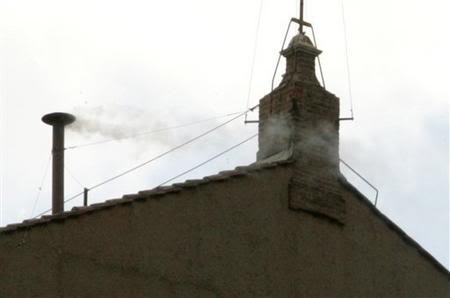28 April 2025
To present-day English speakers, grotesque is probably most familiar as an adjective meaning incongruous, absurd, or having distorted and ugly features. But it can also be a noun meaning a style of decorative art with distorted or caricatured human or animal forms and a piece of work in that style. The noun sense is the older one.
The English word is first recorded in the 1560s, a borrowing from the early modern French crotesque, which in turn is from the Italian grottesca. The Italian root, grotta, means grotto, so a grotesque is literally a style or piece of art appropriate to grottos. Exactly how grottos came be associated with such art is uncertain, but a plausible explanation is that it comes from excavations of buried ancient Roman architecture that had such works on their walls.
We first see the word appear in English in inventories of the valuables possessed by the Scottish royal court made during the reigns of Mary Queen of Scots and James VI. The first, from 1561, reads:
Item, twa paintit broddis the ane of the muses and the uther of crotescque or conceptis.
(Item: two painted boards, one of the muses and the other grotesque or ornamental.)
The second, from 1578, reads:
Ane litle pece of broderie werk grotesque
(A little piece of grotesque embroidery work)
The modern adjective, in the sense of something distorted or disfigured, appears several decades later. From John Hall’s 1650 Paradoxes:
And if wee looke somewhat more nicely into the thing it selfe, we shall finde that the sluggish Name of content never came from any other forge then the dull multitude (who though they be masters of words) are commonly enemies of reason, and therefore ought to bee accounted one of those Grotesco Maximes, and willy-with-wishes, that doe so disfigure and misguide the life of man.
And here is another early example from John Dryden’s 1687 poem The Hind and the Panther:
Such Doctrines in the Pigeon-house were taught,
You need not ask how wondrously they wrought;
But sure the common Cry was all for these
Whose Life, and Precept both encourag'd Ease.
Yet fearing those alluring Baits might fail,
And Holy Deeds o're all their Arts prevail:
(For Vice, tho' frontless, and of harden'd Face
Is daunted at the sight of awfull Grace)
An hideous Figure of their Foes they drew,
Nor Lines, nor Looks, nor Shades, nor Colours true;
And this Grotesque design, expos'd to Publick view.
Sources:
Dryden, John. The Hind and the Panther. London: Jacob Tonson, 1687, 131. ProQuest: Early English Books Online (EEBO).
Hall, John. Paradoxes. London: John Walker, 1650, 45. Gainesville, Florida: Scholars’ Facsimiles and Reprints, 1956. HathiTrust Digital Archive.
“Inventair of the Jowellis Plenissingis Artaillierie and Munitioun Being Within the Castell of Edinburgh Pertening to Our Soverane Lord and His Hienes Derrest Moder” (1578). In A Collection of Inventories and Other Records of the Royal Wardrobe and Jewelhouse. Edinburgh: 1815, 239. Google Books.
“Inventairis of the Movables Pertening to the Quenis Grace Dowriare and Regent and to Our Soverane Lady the Quene” (1561). In A Collection of Inventories and Other Records of the Royal Wardrobe and Jewelhouse. Edinburgh: 1815, 130. Google Books.
Oxford English Dictionary, second edition, 1989, s.v. grotesque, n. and adj.
Image credit: Michelangelo, 1530. British Museum. Wikimedia Commons. Public domain image.





